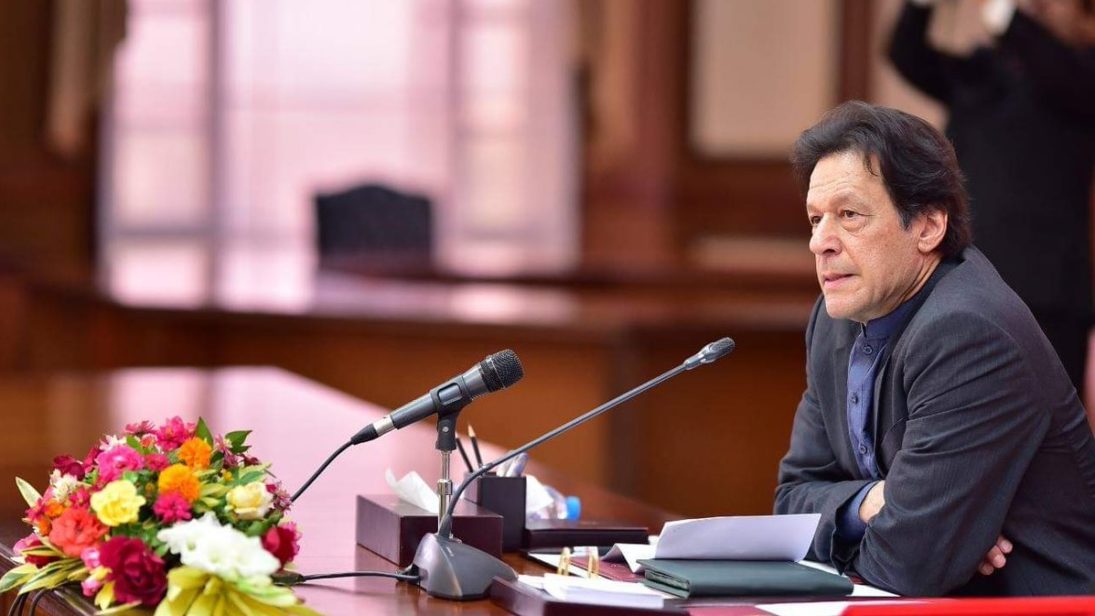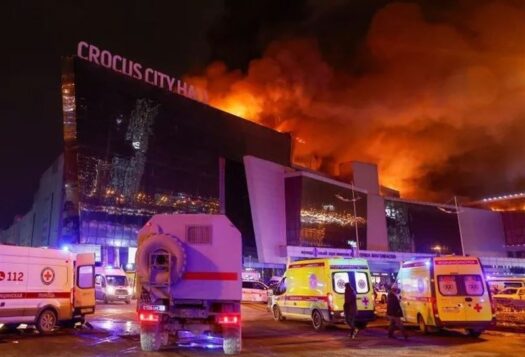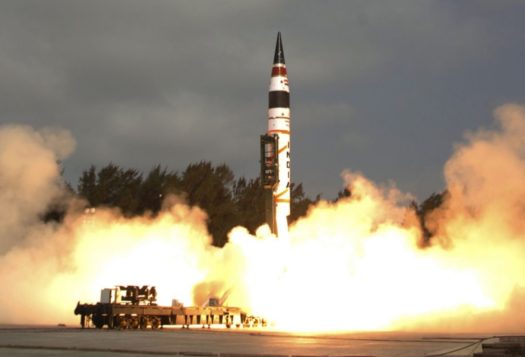
The Pulwama crisis exposed critical lacunae in Indian and Pakistani politics. It became evident that the Bharatiya Janata Party (BJP) in India is invoking nationalism and fabricating facts in a bid for votes, while in Pakistan, militant groups like JeM continue to operate and require significant political and military will to be dismantled. Critical to the emerging dichotomous narratives in the aftermath of Pulwama is what we learned about each country: both Pakistan and India need to get their houses in order.
India,Elections, and Nationalism
Elections for “the soul of India” loomed over the Pulwama crisis, causing Prime Minister Modi and the BJP to inspire a nationalist fervor over the tense situation in hopes of accruing votes. Although multiple international sources support the Pakistani narrative regarding the Balakot airstrikes, the Indian government has provided inadequate evidence to prove the strike yielded damage. Pakistan conducted a retaliatory strike, which resulted in an aerial dogfight near the Line of Control (LoC) with a few important outcomes: first, at least one Indian plane was shot down inside Pakistan, and its pilot was captured and returned to India. Second, the Indian claim that it had shot down a Pakistan F-16 plane was later undermined by reporting in Foreign Policy that the United States had accounted for all of Pakistan’s F-16s.
Elections for “the soul of India” loomed over the Pulwama crisis, causing Prime Minister Modi and the BJP to inspire a nationalist fervor over the tense situation in hopes of accruing votes.
Despite these aspects of the crisis that did not go well for India, the BJP has continued to extract electoral mileage from the airstrikes and ensuing air battle. In the past, the BJP has capitalized on Hindu nationalism and Islamophobia, winning a landslide victory in 2014. This led to the formation of a single-party government in India, an anomaly that last occurred in 1984. The tone and tenor of the BJP’s election campaign have cemented this as the party’s central strategy this election season. This unadulterated level of toxic nationalism includes dangerously provocative statements, a refusal to prevent attacks against Kashmiris, and engaging in war rhetoric designed to garner votes.

Even though the BJP is under stress from an increasingly vocal opposition led by the Indian National Congress (INC), there has been no significant pushback from the public as Modi continues to exploit the moment and invoke nationalist post-Pulwama speech. To the contrary, Modi’s popularity has risen among the general public over the last few months, with polls indicating that he is more popular today than he was prior to the 2014 elections.
Other domestic takeaways are related to the noxious nationalist rhetoric of the Indian media. Populated by pundits and anchors vying for ratings through sensationalism and hyper nationalism, the Indian media has played a major role in exacerbating the India-Pakistan conflict, and will likely continue to do so. It is no wonder that this brinkmanship tactic by the Indian media has been criticized both internally and externally.
The BJP’s losses in recent state elections has already resulted in the invocation of majoritarianism that will have far-reaching consequences. Both the media rhetoric and political reaction to the crisis caused Indian Muslims to suffer a backlash that may compound the country’s majoritarian situation, further stall India’s talks with Pakistan, and increase the possibility of regional conflict in the future.
India needs to clean its own house and disallow such nationalism from taking permanent hold in the largest democracy in the world. Perhaps nationalism would not have been the BJP’s strategy of choice if promises of economic growth and development had been fulfilled. Instead, under Modi, growth has been lower than promised, and unemployment is at a 45-year high. The simplest solution is vertical accountability in the form of elections, but as polls suggest, Modi is likely going to come out on top after elections conclude in May. A more complicated solution is constitutionally disallowing discrimination masquerading as nationalism, be it in political discourse, the airwaves, or religion.
Pakistan,Governance, and the FATF
On the other hand, Pakistan has fought a largely successful internal campaign against proscribed militant and insurgent groups. Fatalities from terror attacks in Pakistan dropped from 4,643 in 2013 to 754 in 2018. However, while most groups have been dismantled, muzzled, or mainstreamed through participation in elections, there are still pockets of militancy that continue to create problems both domestically and internationally. There is also historical precedent for patronizing certain groups for perceived national interests (admitted to by the then president of Pakistan himself), and this has repeatedly created international humiliation and national strife. There is a culture of denial by Pakistani politicians, as exemplified by an embarrassing interview of the Foreign Minister Shah Mehmood Qureshi for the BBC, in which he seemed utterly unprepared and denied Jaish-e-Mohammad (JeM) involvement in Pulwama, despite a video and press release by the proscribed group. Pakistan claims that evidence provided by India does not link JeM to the attack.
On the monetary side, Pakistan was placed on the FATF’s grey list in 2018, an embarrassing status that denotes poor financial regulation and insufficient deterrence for terror financing. A top priority for Pakistan noted by the Financial Action Task Force (FATF), an international watchdog dedicated to curbing money laundering and terror financing, is to choke financial pipelines for militancy.
There must be an emphasis on cutting support to the funding and operations of known entities JeM and Jamaat-ud-Dawa (JuD). Doing this will put Pakistan on a path of internal security and economic prosperity, fulfill its international commitments, and disallow India to divert attention from human rights violations in Kashmir.
Much more needs to be done on the Pakistani side to undo proscribed organizations if Pakistan is to be removed from the grey list and avoid the black list. There must be an emphasis on cutting support to the funding and operations of known entities JeM and Jamaat-ud-Dawa (JuD). Doing this will put Pakistan on a path of internal security and economic prosperity, fulfill its international commitments, and disallow India to divert attention from human rights violations in Kashmir. At present, the strategic communications war between the two countries has a demonstrably obvious winner, where the Indian stance on Pakistan’s patronage of certain groups has far better optics and acoustics than Pakistan’s demands for India to address grievances of the Kashmiri people.
Regardless of whether one finds the Indian or Pakistani narrative more plausible, Pakistan’s priorities must shift to stable governance as well as better command and control of monetary pipelines. For instance, principal among these governance challenges is the failing education system in the country. A reported 22.5 million children (ages 5-16) are out of school, a gap often filled by unregulated madrassas. Additionally, Pakistan needs to foster economic growth, address a failing justice system, and guarantee fundamental and constitutional rights to citizens.
In all likelihood, theFATF has already made its decision regarding Pakistan’s status, and while it ishighly unlikely that they will put Pakistan on the dreaded black list, it isalso dubious that Pakistan will be removed from the grey list. Since thisstatus is renewed every three years, Pakistan ought to pour a significant chunkof its energy into reversing this decision before it is too late.
Conclusion
The culmination of Indian elections and Pakistan’s increased impetus to be compliant with FATF’s conditions may be ingredients needed to thaw the ice […] in the greater interest of their respective economies, and the wider region.
The priority for Pakistan, as outlined by major political leaders and even the military, must be the systematic dismantling of groups that still operate in Pakistan, while pursuing a stable government, and stable priorities vis-à-vis terror financing. Political and military willpower is key to successful pursuit of this goal. It must be said that when it comes to leadership in Pakistan, there has been a marked difference between promises and delivery, and that gap must be bridged. This may only be achieved through sincerity of purpose and unwavering focus on securing Pakistan’s larger interests.
Elections in India will determine the course of action for bilateral relations, especially if the BJP is unable to capitalize on its past success. For politics and the media, the use of jingoism to mask discrimination and prejudice should be monitored and curtailed. Finally, much like Pakistan, India also needs to focus on its internal priorities, especially the economy and unemployment.
With zero possibility of bilateral talks currently, the focus must remain internally oriented, on setting both countries’ respective houses in order. The culmination of Indian elections and Pakistan’s increased impetus to be compliant with FATF’s conditions may be ingredients needed to thaw the ice and allow the two sides to settle their issues in the greater interest of their respective economies, and the wider region.
***
Image 1: Government of Pakistan via Twitter


